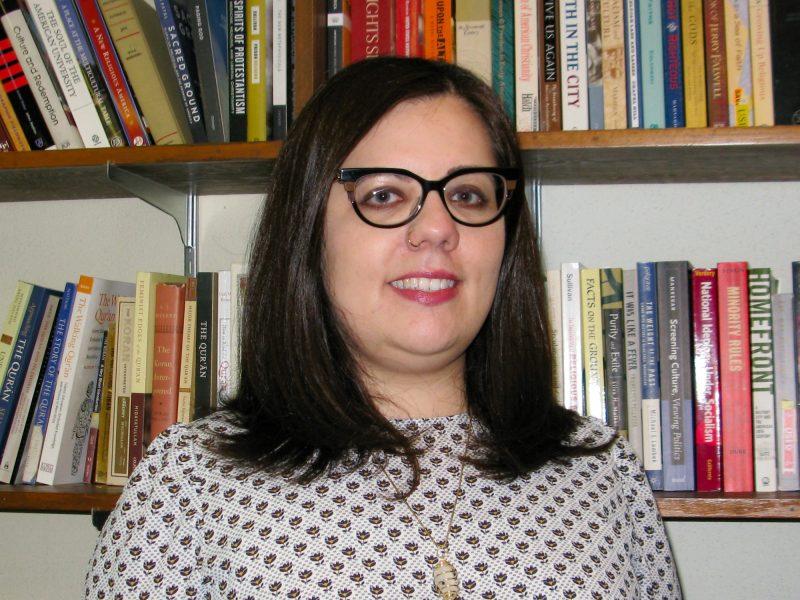For the last few weeks, students in Sajida Jalalzai’s class, “Introduction to the Qu’ran,” have been immersed in a project where they were tasked with interviewing Muslims in the San Antonio community. Jalalzai, an associate professor of religion who specializes in the anthropological approach to Islam in North America, wanted students to have an opportunity to conduct their own research.
“I do research that often focuses on ethnography and observing communities, and I wanted my class to have the experience of doing this kind of research, sharing their results with peers and analyzing their findings,” Jalalzai said.
Students, as individuals or in small groups, created a list of questions to ask their chosen subjects about their approach to the Qu’ran, religion and spirituality in general.
“Given that this is a course on the Qu’ran, many questions students ask have to do with [the interviewee’s] relationship with the Qu’ran as a physical text and as a religious text, if they memorize specific passages, favorite verses,” Jalalzai said. “A recurring question students have asked is how Muslims interpret the Qu’ran’s portrayal of women.”
Sophomore Lara Case interviewed a Muslim Trinity alumna and learned about the passages from the Qu’ran that mean the most to her.
“I thought it was interesting that she would always say a specific memorized prayer from the Qu’ran before she got in her car, to protect her from possible car accidents,” Case said. “One of her favorite passages from the Qu’ran is Surah al-Fatiha (the opening chapter of the Qu’ran) because it’s one that she learned as a child, so it brings her comfort.”
Junior Simone Washington spoke about how she and her partner, first-year Rachel Poovathoor, found their subject.
“My partner and I found a young Muslim woman in the San Antonio community — [she and Poovathoor] actually went to high school together, so that was our connection,” Washington said.
Washington spoke about how her interviewee incorporates religion into her life.
“Having the interview confirmed the level of respect that some Muslims have for the physical text of the Qu’ran. She would never even think about placing the Qu’ran on the ground, always washes her hands before she [engages] with it, has several passages memorized from it and uses that in her daily prayers which take place five times a day,” Washington said. “She was an example of a very devout Muslim, and I’ve heard from some of my peers about different levels of engagement [interviewees have] with religion and with the Qu’ran, so it’s very interesting to see her end of the spectrum.”
Washington found that she and her interviewee shared differences, but also had many things in common.
“She was raised Muslim. Her parents are strict on some things, lenient on others, and it was interesting to hear her perspective on life. It’s a lot different from my experiences. … She grew up in a big, religious family. I grew up with my mom. She is pretty religious, but didn’t have very strict requirements of me,” Washington said. “But then you also see how similar we are. We have a lot of the same mannerisms [and] humor, and it’s just another example of differences are not being the thing that defines us: we also have similarities that bring us together.”
Jalalzai hoped that the assignment’s group presentation component, which took place this week and required students to share their findings with the class, would help students understand the multitude of approaches Muslims can take to their faith.
“One of the goals of the presentations is for the whole class to get a sense of the diversity of the Muslim community in North America, disrupting ideas of homogeneous Muslim communities. As students often find, approaches to the Islamic faith differ: some Muslims have an intimate relationship with their faith and some not really at all,” Jalalzai said.
Students who want to learn more about Jalalzai’s class, which is offered each semester, can email [email protected].







